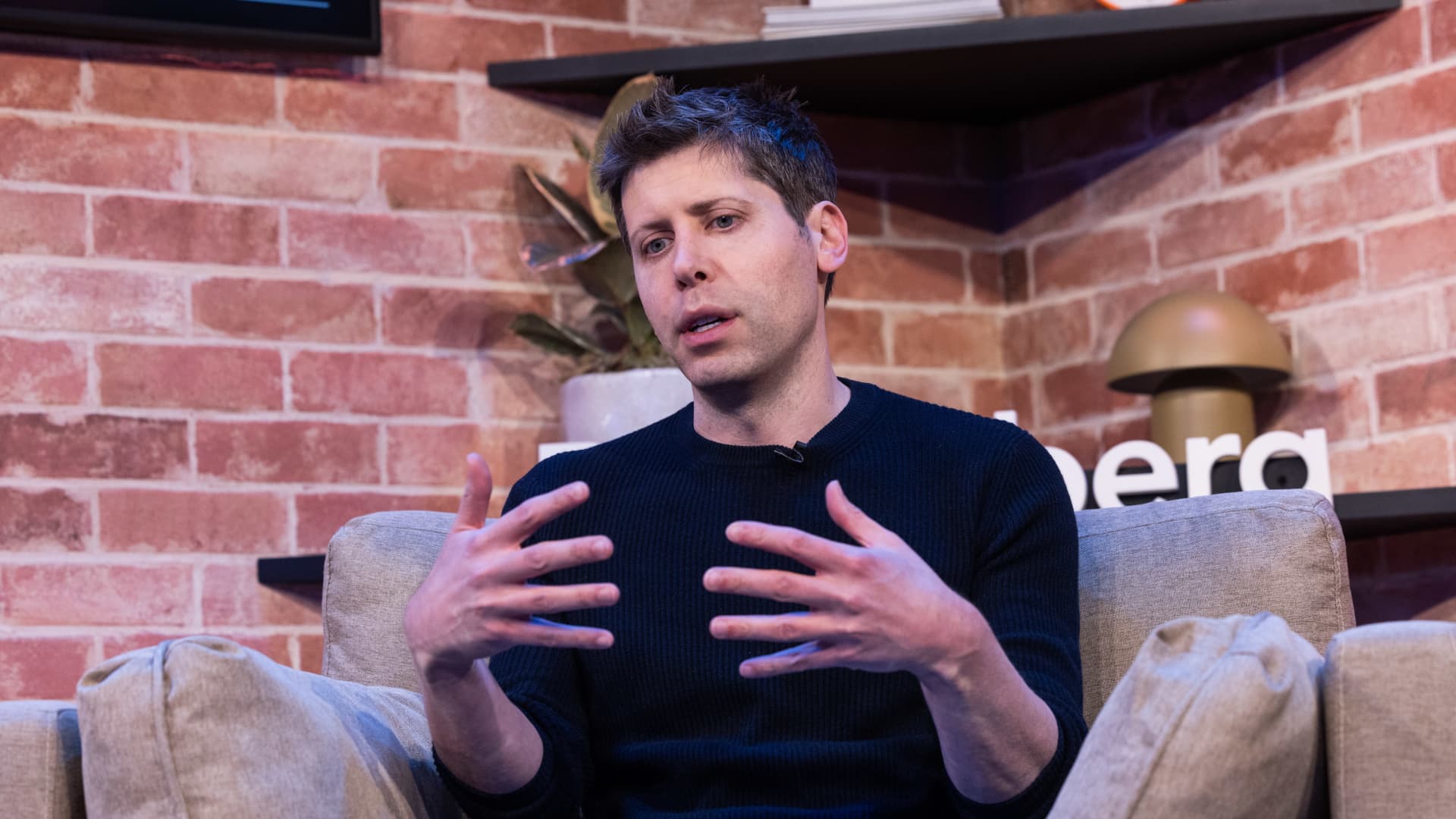DAVOS, Switzerland — OpenAI founder and CEO Sam Altman said the night he was pushed out by the board was “wild,” and he felt “super confused” and was “super caught off guard.”
“But this is the structure, and I immediately just went to go thinking about what I was going to do next,” Altman, OpenAI’s CEO, said in a private gathering convened at the Bloomberg House on the Davos Promenade on Tuesday.
“It was not until some board members called me the next morning that I even thought about really coming back,” continued Altman, reflecting on the dramatic turn of events that led to his ouster — and subsequent re-instatement — in November. “But, like, the board did have all of the power there.”
Indeed, the unusual corporate structure of OpenAI — the creator of the buzzy A.I. tool ChatGPT — is what led to Altman’s surprise ouster.
Typically, it’s rare to see a founder forced out of their company, but Altman’s power differs to that of other major tech founders, in part because he has no actual ownership of the entity itself.
“I have no equity in OpenAI,” Altman said in a May Senate hearing on artificial intelligence.
“You need a lawyer or an agent,” Senator John Kennedy quipped, in a remark that proved prescient.
The organizational chart of the generative AI startup, valued by private investors at $86 billion, is decidedly confusing. It ultimately proved to be bad for its founder, both in terms of safeguarding control and holding a financial stake in the firm.
OpenAI’s board of directors sits at the top of the power pyramid, and they are the consortium of voices responsible for controlling the 501(c)(3) charity, OpenAI Inc.
Between the board and the non-profit sits a capped-profit company dubbed OpenAI Global, which Microsoft inked a $10 billion investment deal with in January last year. There are also a few other entities, including a holding company, that comprise the somewhat convoluted organization behind the biggest name in generative AI tech.
I would like to make all of our shareholders a bunch of money, but it was very clear to me what people’s priorities were.Sam AltmanCEO, OpenAI
In November, the board said it had lost confidence in its leader and expelled the chief executive from the organization. The events that followed in the subsequent hours were messy and involved virtually the entire staff of OpenAI threatening to resign after their founder’s departure.
Concerns over AI safety and OpenAI’s role in protecting were at the center of Altman’s brief ouster from the company.
Despite Microsoft’s sizable investment in the startup, the tech giant neither had a board seat nor a say in Altman’s firing.
Within days, Altman was reinstalled to his original post, but speculation ran amok over the OpenAI drama that dominated the news cycle during Thanksgiving week.
Altman told the afternoon gathering in Davos that “in the middle of that crazy few days,” roughly 98% of the company had signed a letter saying they would resign if Altman was not restored to his position of CEO.
“That would have torched everyone’s equity, and for a lot of our employees, like this is all or the great majority of their wealth, and people being willing to go do that, I think is quite unusual,” Altman said of his team, adding that OpenAI’s investors were also about to watch their stakes go to zero, including Microsoft.
“I would like to make all of our shareholders a bunch of money, but it was very clear to me what people’s priorities were,” Altman said of the solidarity of his staff and investors.
Altman, who has demurred countless invitations from the press to speak out about his surprise firing and re-hiring, questioned the moderator over pursuing the line of questioning in the first place.
“Is [this] really what we want to spend our time on, like this soap opera rather than what AGI is going to do?” Altman asked in earnest.
When asked whether OpenAI would reform its structure and become a traditional Silicon Valley for-profit company, Altman was adamant that his startup wouldn’t go that way.
“We will never be a traditional company,” he said. “But the structure, I think we should take a look at the structure. Maybe the answer we have now is right, but I think we should be willing to consider other things.”
Altman added that now was not the time to reconsider company structure. Instead, he said the focus was on the board first.
“I think one of the things that’s difficult to fix for us about OpenAI is the degree to which our team and the people around us, invest in us or whatever, are committed to this mission,” Altman said.
— CNBC’s Rohan Goswami contributed to this report.
